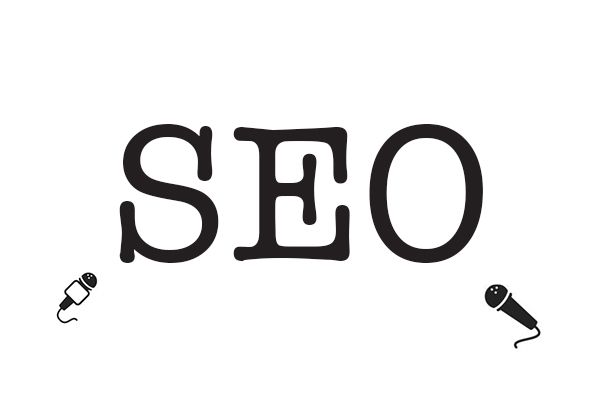
Perfecting the art of SEO, one keyword at a time!
Unlocking SEO Success: Tailored Strategies for Your Brand
Dive into the world of SEO with our expert agency in Mumbai, where we prioritize your brand's unique needs. With over eight years of experience, we offer comprehensive on-page and off-page SEO services, including app store optimization and keyword-focused content. Our dedicated team combines creativity with proven strategies to help you reach the right audience and maximize your online presence. Ready to elevate your brand's visibility? Let’s connect!

Lights, Camera, Brand Magic: Why Your Story Deserves a Video
Why Branding Videos Pay Off
Brand videos boost visibility, build trust, and drive engagement. They improve SEO, multiply social reach, and create emotional recall that static content can’t match.

Let's talk Branding
The strategy that builds iconic businesses
Have you ever thought that your company is "just fine" because it has a clean website, a nice logo, and lovely colors? Hi there, then! Greetings from the mysterious but often misunderstood world of brand strategy. Because a logo is just the beginning. If your brand is an iceberg, it’s what lies beneath - the values, voice, promise, and positioning - that truly keep it afloat.

Going viral is a skill your brand can master with us!
Unlocking Social Media: Strategies for Success in a Dynamic Landscape
In a world where everyone uses social media, navigating this landscape can feel overwhelming. This blog examines the evolving field of social media marketing, noting that no one can be a true expert. With TikTok at the forefront of video marketing and influencer partnerships, brands have many ways to connect with audiences. From Facebook ads to Instagram strategies and LinkedIn community building, learn how to effectively engage your target market in today’s social media landscape.
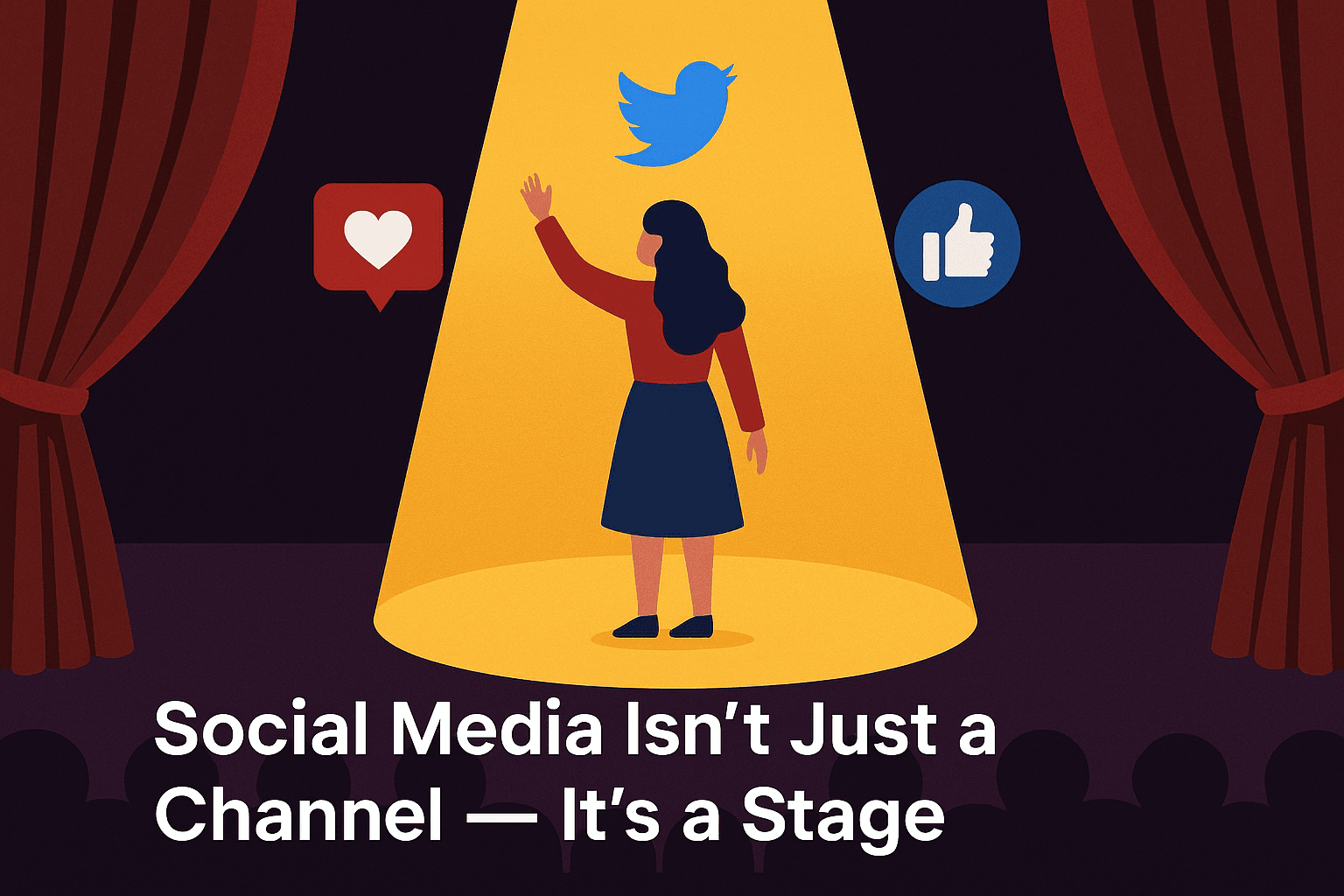
Because Social Media Isn’t Just a Channel - It’s a Stage
From Social Presence to Social Power
At ting, creativity meets strategy. We don’t just make posts, we tell stories, experiment fearlessly, and turn brands into living, breathing personalities online.

Why Your Brand Needs More Than Just Keywords
Beyond Keywords — The Real Heart of SEO
SEO isn’t just about stuffing keywords or chasing algorithms — it’s about being discoverable, memorable, and trusted. In a digital world where everyone’s shouting for attention, your brand needs a strategy that blends creativity with performance. With Ting’s approach to SEO, your story doesn’t just rank — it resonates, connects, and converts.

Lights, Camera, Growth: Why Your Brand Needs Video Content Now More Than Ever
Why Video Feels More Human Than Any Other Format
Video brings tone, emotion, movement, and personality together, making your brand feel alive rather than static on a screen.
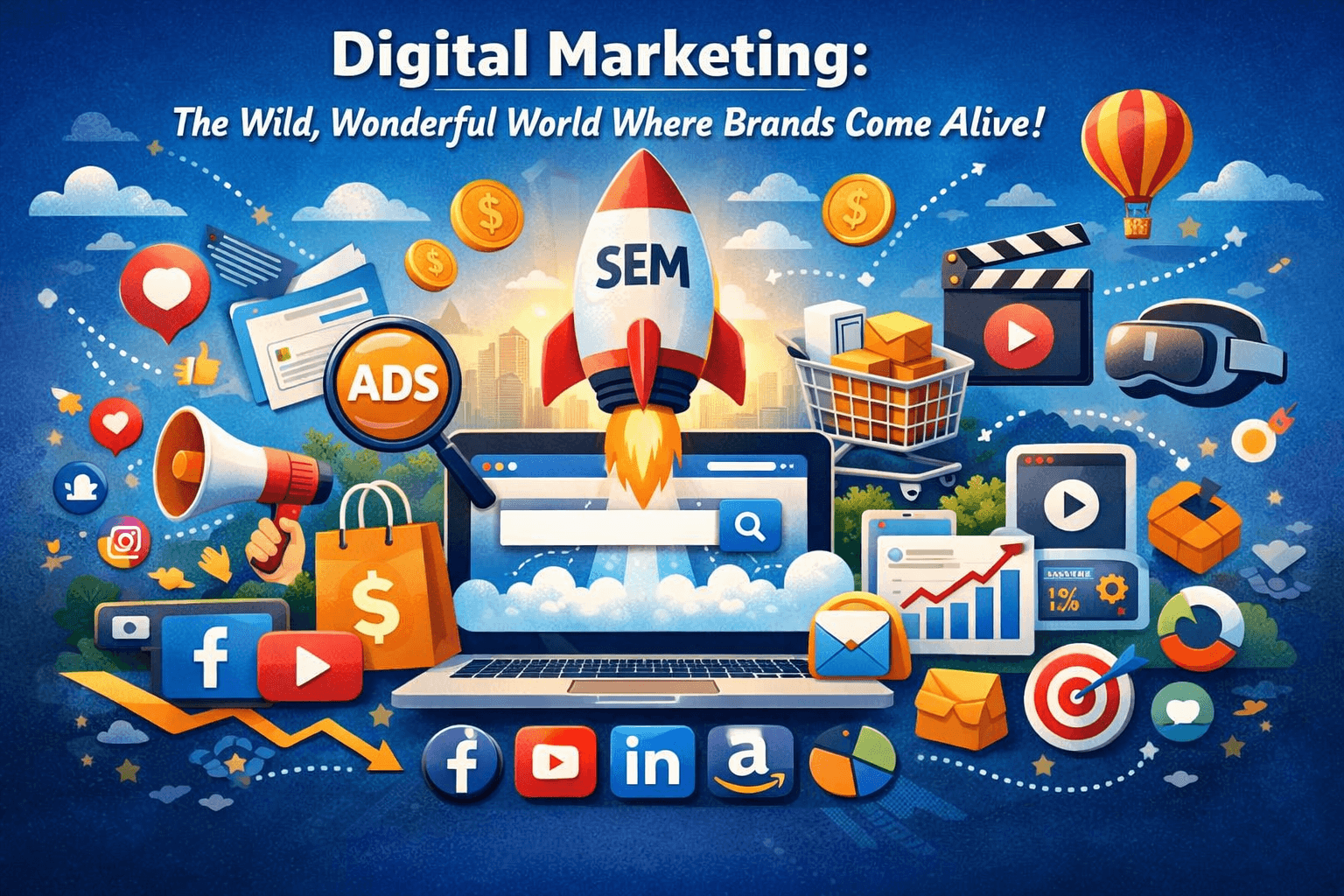
Digital Marketing: The Wild, Wonderful World Where Brands Come Alive
SEM Marketing: Being There When It Matters Most
Search Engine Marketing puts your brand in front of users exactly when they’re looking for answers, products, or solutions. It’s not just about keywords, it’s about intent, timing, and relevance.

Influencer Marketing: The Secret Sauce Behind Today’s Biggest Brands
Why Influencer Marketing Works Today
A look at why modern consumers trust creators more than traditional ads, exploring how influencers use authenticity, storytelling, and community engagement to shape conversations, spark trends, and influence real buying decisions across digital platforms.

Your Brand Called - They Want a Better Photoshoot
Why Visuals Shape First Impressions
Before someone reads a single word about your brand, your imagery has already communicated who you are. Strong visuals build trust, signal quality, and create an instant emotional connection—often before any copy gets a chance.
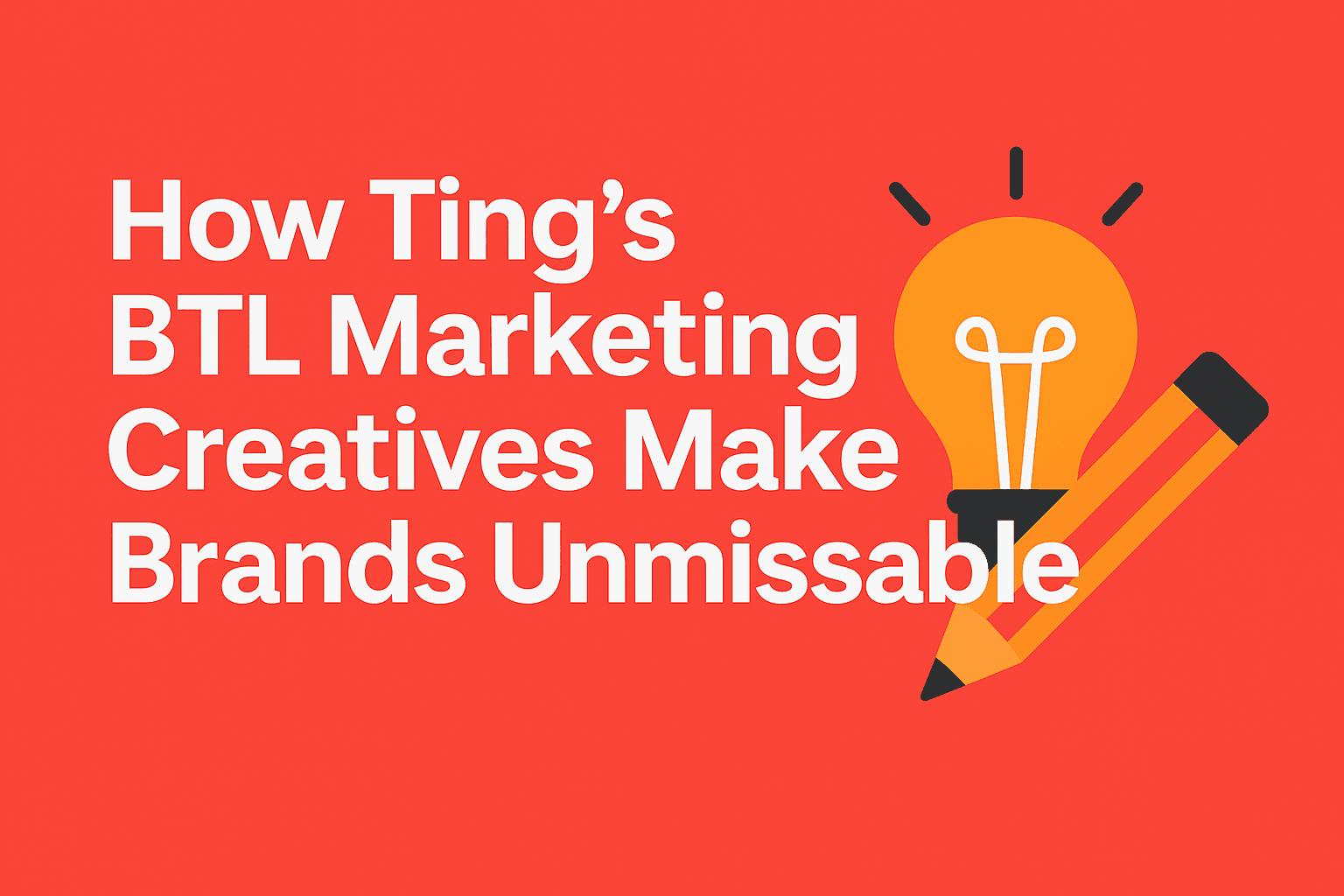
How Ting’s BTL Marketing Creatives Make Brands Unmissable
Why BTL Matters More Than Ever
In a world overflowing with mass advertising and constant digital noise, BTL marketing cuts through the clutter by creating personal, memorable brand interactions. It shifts the focus from broad awareness to targeted engagement, ensuring your audience not only notices you but genuinely connects with your message.

Shopify vs. WooCommerce: Choosing Your E-commerce Battleground
Ready to Build? Let’s Launch Your Digital Empire
Whether you choose the convenience of Shopify or the creative control of WooCommerce, Ting’s e-commerce experts are ready to bring your vision to life. From strategy and design to development and performance optimization, we build online stores that don’t just look great — they convert, scale, and dominate in a competitive digital marketplace. Let’s turn your business idea into a powerful online brand.

Take Your Brand Sky-High with Ting’s ATL Marketing Magic
Why ATL Still Works in a Digital World
In an age where consumers are bombarded with endless digital ads, the power of a strong physical presence is more relevant than ever. A clever print ad, a striking hoarding, or a memorable outdoor experience can cut through the digital noise and leave a lasting impression. ATL marketing doesn’t just grab attention — it builds credibility, emotional connection, and lasting trust.

Unpacking Potential: Where Branding & Packaging Get Playful
The 5 Pillars of High-Impact Packaging
Our five guiding principles — from audience psychology to sustainability and cost-efficiency — form the foundation of every design we create. At Ting, we don’t just chase trends; we design with intent. Each element, whether visual, structural, or strategic, is crafted to make your packaging both memorable and meaningful. The result? Designs that attract attention, build trust, and perform brilliantly in real-world markets — transforming every package into a powerful brand storyteller.

Small Business, Big Energy
The Day We Brought Our Worlds to Work
It’s 11:30 a.m. on a Friday, and the office looks different. Desks have turned into stalls. People are walking in with tote bags, cake boxes, coolers, and trays - lifting, arranging, setting up their displays like seasoned sellers. You see a roll-up banner decorated with fairy lights, a chalkboard with a juice menu and QR codes all taped up.

What is an integrated marketing agency
What is an integrated marketing agency?
Discover the power of integrated marketing agencies, where diverse teams collaborate to deliver cohesive and effective marketing solutions. Unlike one-trick-ponies, we embrace creativity and strategy, ensuring your brand gets the comprehensive support it deserves. Bring us your marketing challenges, and let’s create impactful solutions together. At Ting, we’re all about collaboration and #LoveOnly!

Your Website Is Not Just a URL; It’s Your First Impression
What Makes a Website Truly Great
A great website combines speed, functionality, and design. From quick load times and intuitive navigation to scalability and security, it’s all about creating a seamless user experience that drives conversions.
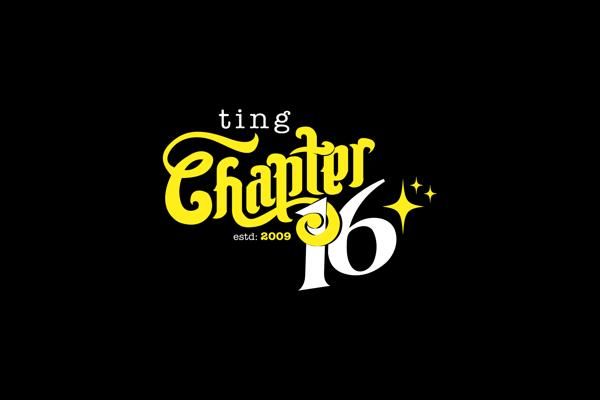
ting Chapter 16: The Birthday Edit
Sixteen is a funny age. You’re confident. You’re reckless. You think you know everything… until a new adventure reminds you there’s always more to discover.
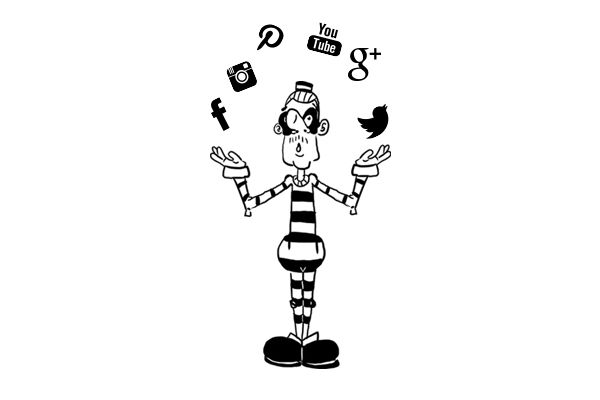
The Latest Social Media Feature Drops
A Brand Manager’s Survival Guide
If you’re a brand manager, here’s a small truth bomb: the platforms you rely on change faster than Mumbai traffic signals. Blink, and suddenly your “go-to” strategy looks like it belongs in a history textbook. So, to save you from scrolling through countless product blogs and tech sites, here’s your all-in-one update on what YouTube, LinkedIn, and Instagram have been cooking up in the last few weeks. Think of this as your monthly catch-up call with the algorithms.
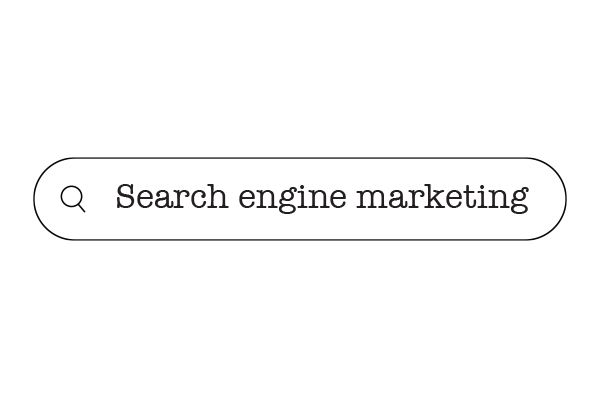
Search engine marketing is great! We’re here to tell you why
Maximize Your Brand’s Visibility with Expert SEM Solutions
Struggling with SEM marketing? With over 8 years of experience, our team specializes in search engine marketing to help your brand stand out in a crowded digital landscape. From PPC services to tailored AdWords campaign management, we create customized strategies for various industries. Whether you own a jewelry brand or a trampoline park, we’ve got the expertise to drive results and ensure a great return on your investment. Let us craft the perfect SEM plan to make your product a bestseller!






















